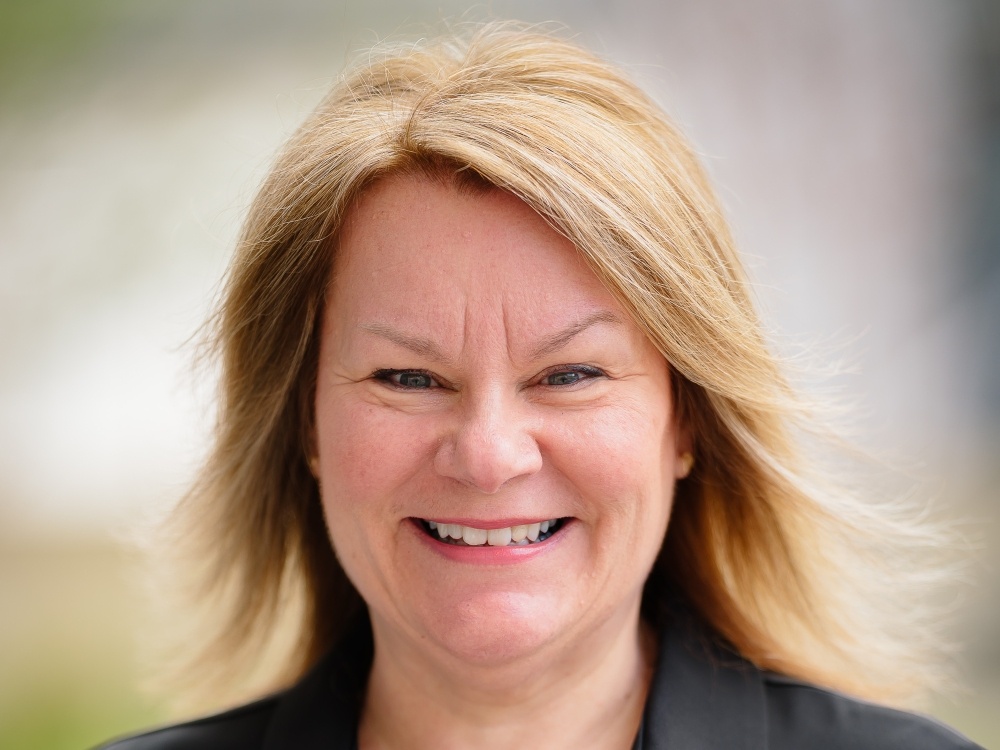What inspired you to become a nurse, and how did you become involved in caring for patients with mitochondrial disease?
“I qualified as a nurse in 1990 and have spent the majority of my career at the Royal Victoria Infirmary in Newcastle, working across various senior nursing roles within Neurosciences. This included serving as a Clinical Nurse Specialist for Parkinson’s and later as a Matron, where I developed a strong foundation in managing complex neurological conditions.
I developed an interest in mitochondrial disease whilst working in a neurology in-patient setting. I was caring for patients and families dealing with the complex physical and emotional challenges that rare diseases bring. The strength and determination these individuals showed – not only in coping with their own symptoms but also in actively contributing to research and advocacy – has been an inspiration to me.”
Your role is unique and very specific – can you tell us a bit more about what you do?
“As the UK’s only Mitochondrial Nurse Consultant, I work within the Nationally Commissioned Mitochondrial Service for adults and children, a highly specialised area supporting people affected by this complex, rare genetic condition.
I provide direct patient care in the specialist mitochondrial clinics, managing my own caseload and working closely with individuals and families to support their health, treatment decisions and long-term wellbeing. I also offer expert consultation to patients, carers and healthcare professionals – not just in the UK, but internationally.
Beyond clinical care, I contribute to the planning of service provision, help develop national care pathways and lead patient and public engagement initiatives to ensure the mitochondrial community is supported, heard and informed.
In the absence of a cure for mitochondrial disease, one of my key passions is helping families make informed reproductive choices to minimise the risk of passing on mitochondrial mutations. I’ve carried out case comparison studies and developed guidelines to improve coordination of antenatal care.
I now coordinate a specialist reproductive pathway for women considering options such as mitochondrial donation – a pioneering IVF technique that reduces the risk of inherited mitochondrial disorders. This treatment became legally available in the UK in 2016, following landmark legislation.
I’m proud to be part of a dedicated mitochondrial and fertility team that supports women through this process, and I help lead a research project assessing the neurodevelopmental outcomes of children born through MD.”
What are some of the biggest challenges nurses face when supporting mito patients and their families?
“Caring for individuals with mitochondrial disease goes far beyond the initial diagnosis. Living with a complex and progressive condition is tough, however knowing there’s currently no cure is particularly challenging for patients and families.
The condition can present with so many different symptoms which impact quality of life. Patients and their carers often express feelings of helplessness and isolation which can have a profound impact on mental health.
Accessing appropriate psychological support remains one of our biggest challenges. Long waiting times and limited availability of specialist counselling services mean that not all families receive the mental health care they need – particularly within their local area.
That’s where charity partnerships play a vital role. Working closely with The Lily Foundation allows me to connect patients with additional support that complements our clinical service – from psychological support and social events to resources for mental health and wellbeing. These services offer not only practical help, but also community, comfort and a sense of purpose.”
What do you hope the future of nursing looks like, particularly for those working with rare diseases like mito?
“I believe the future looks promising for those living with mitochondrial disease. Thanks to ongoing advances in genomic medicine, improved access to genetic testing and a growing body of research through clinical trials, we’re now closer than ever to finding effective treatments.
The UK’s Rare Disease Framework is paving the way for faster diagnosis, better coordination of care and improved access to specialist services and treatment options. These are essential steps in ensuring people with rare conditions no longer feel left behind by the healthcare system.
The evolving genomic landscape also means there is greater access to comprehensive genetic testing. Thanks to patient participation in clinical trials, I believe we’re closer to drug treatments than ever before. Importantly, the NHS long-term plan has also recognised the need for psychological support, committing additional funding to help address one of the greatest unmet needs faced by patients and families.
For nurses like myself working in rare diseases like mito, I hope the future brings greater recognition, resources and training, so we can continue to lead, advocate and make a lasting impact in this highly specialised and deeply rewarding field.”
What message would you like to share with fellow nurses, and indeed with the general public, on International Nurses Day?
“To meet the demands of an ever-increasing population and financial constraints, it’s more important than ever for healthcare professionals to work in partnership with patients.
Now, more than ever, nurses are in a pivotal position to empower patients to promote self-care and take more control over their own physical and mental wellbeing and to drive change in policy for patient-centred care.”
We’re working with nurses like Catherine to support mito patients. Can you help?
The Lily Foundation work closely with the NHS to improve care for mito patients and their families. We're making a real difference, every day – but we can only do this with your help. Please donate today and help us improve the lives of people with mitochondrial disease.

